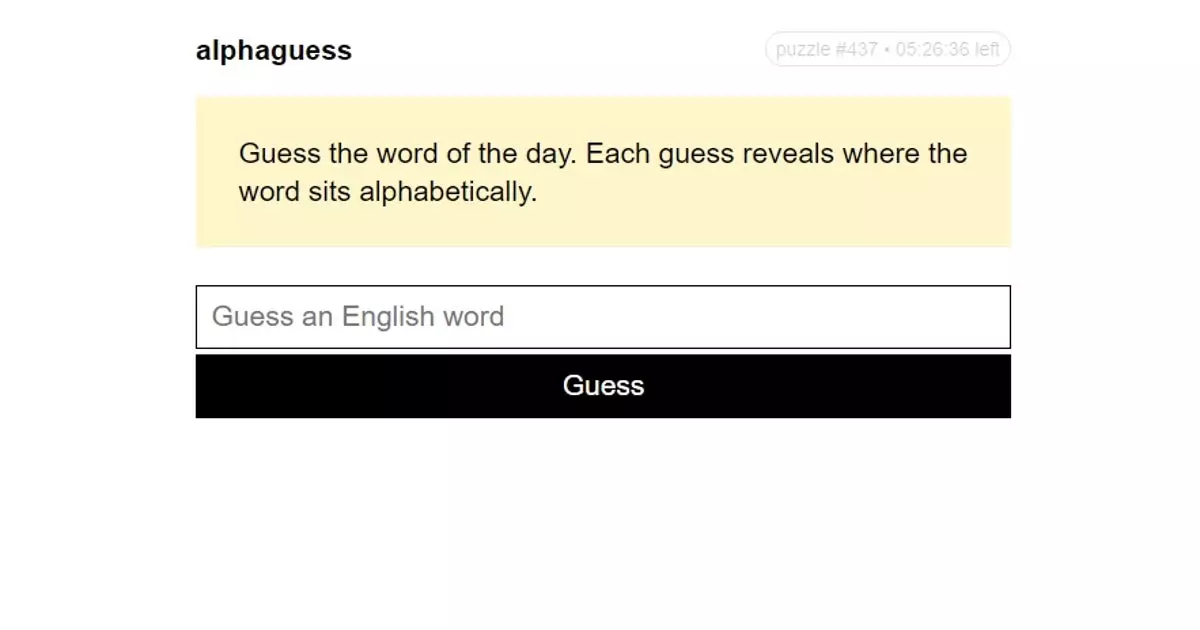In our increasingly fast-paced digital world, distractions are ubiquitous, often masquerading as productivity tools. Recently, I embarked on this journey of diversion, introducing you to intriguing little games designed to lead you away from the grind of daily tasks. Today, I delve into the fascinating realm of Alphaguess, a word-guessing puzzle that presents a charming conundrum every day. This game cleverly challenges participants to deduce a hidden word based solely on their testing of alphabetic sequences, providing feedback about whether each guess is alphabetically earlier or later than the target word.
Engaging with Alphaguess is a lighthearted challenge—a refreshing break from the demands of work and life. With only one guess permitted per day, the thrill lies in the anticipation of discovery. In my recent attempt, I stubbornly wrestled with the word for a staggering twenty-six tries and eight minutes, a statistical embarrassment that surely raises eyebrows. This vulnerability is part of the allure; the game is simple on the surface but can easily stretch your patience and wit. My initial guess—a strategic “muddle”—aimed to invoke the divide-and-conquer principle typical of word games, yet I found myself enmeshed in a web of letters and uncertainty.
While I frequently categorize games like Alphaguess alongside classic puzzles such as Wordle, I have begun to question whether this label truly encapsulates their essence. Unlike more complex games requiring intricate cognitive strategies, Alphaguess is remarkably straightforward. Its charm stems from pure guesswork, with each player engaging in a game of elimination rather than lateral thinking. It’s akin to guessing a number between one and a thousand, stripped of pretense—this isn’t a traditional puzzle in the classical sense; nonetheless, it captivates the imagination in a way that’s equally valid.
Despite the seemingly trivial nature of such word games, conveying their allure is not an effortless task. They provide a delightful diversion—think of it like perfecting the age-old game of spotting license plates during a road trip. Alphaguess serves not just as a mental exercise but also as a charming companion during mundane daily routines. The satisfaction gained from arriving at the correct answer, despite the effort it requires, creates an engaging experience that makes the brain feel both exercised and entertained.
Recognition is also due to curator Caroline Crampton, who brought attention to both Alphaguess and its whimsical counterpart, Scrambled Maps, this week. The serendipitous nature of discovering these games fosters a sense of community among players, each sharing their journey of exploration, frustration, and, eventually, triumph. Collectively, we indulge in this playful pursuit, further proving that sometimes, stepping away from productivity can ironically result in moments of profound creativity and joy.
It might not always be about achieving tasks but rather enjoying the playful engagement that keeps our minds sharp and our spirits lifted.


Leave a Reply